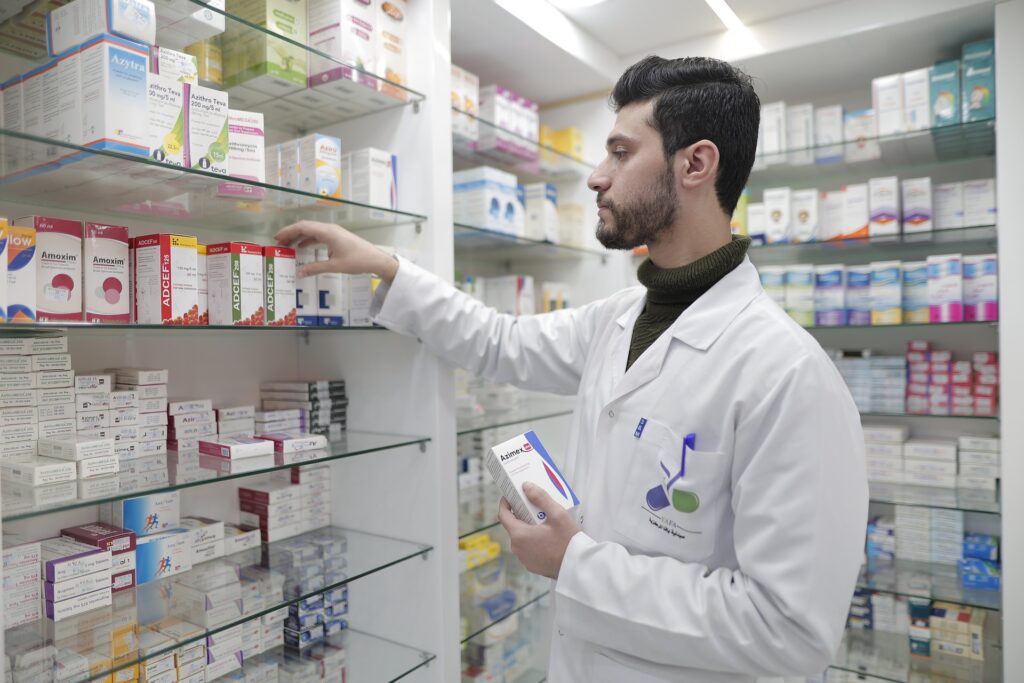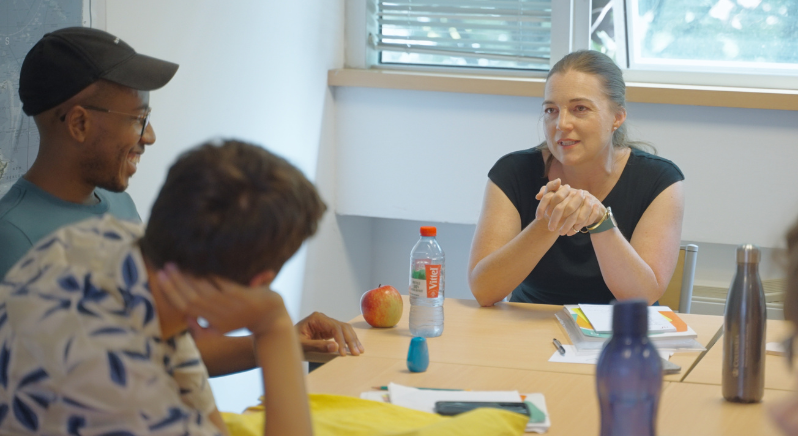Feeling under the weather is inevitable, especially when you’re adapting to a new environment like France. Knowing how to express your health concerns in French is crucial.
This blog post aims to equip you with essential medical terms in French. Let’s ensure you’re prepared to seek medical attention in France confidently.
At the Doctor’s Office
When you feel ill, you might visit a médecin généraliste (general practitioner) for less severe symptoms.
For more specific issues, knowing the type of specialist you need can be helpful:
- Dentiste (Dentist)
- Dermatologue (Dermatologist)
- Ophtalmologue (Ophthalmologist)
- ORL (oto-rhino-laryngologiste) (Ear, Nose, and Throat Doctor)
- Pédiatre (Pediatrician)
- Allergologue (Allergist)
- Cardiologue (Cardiologist)
- Endocrinologue (Endocrinologist)
- Gastro-entérologue (Gastroenterologist)
- Gynécologue (Gynecologist)
- Neurologue (Neurologist)
- Oncologue (Oncologist)
- Orthopédiste (Orthopedist)
- Psychiatre (Psychiatrist)
- Rhumatologue (Rheumatologist)
- Urologue (Urologist)
Upon arrival, you’ll be asked to fill out a formulaire médical (medical form) and possibly provide your carte vitale (health insurance card).
Learn more about the carte vitale and how the French healthcare system works in this article: https://stg-gogofrance-ggfstaging.kinsta.cloud/en/blog/french-healthcare-system/
Some questions you might need to answer include:
- Quels sont vos symptômes ? (What symptoms do you have?)
- Où avez-vous mal ? (Where does it hurt?)
- Avez-vous de la fièvre ? (Do you have a fever?)
Vocabulary for the Body
Communicating what hurts is easier when you know the terms for parts of the body. Combine these with “J’ai mal à XXX” (I have pain in XXX / my XXX hurts), XXX being the body part.
- Tête (Head)
- Oeil (Eye)
- Oreille (Ear)
- Bouche (Mouth)
- Dent (Tooth)
- Gorge (Throat)
- Estomac (Stomach)
- Dos (Back)
- Bras (Arm)
- Jambe (Leg)
- Pied (Foot)

Describing Symptoms
Beyond pain, being able to describe symptoms is important and here are some medical terms in French to tell doctors about your condition:
- Fièvre (Fever)
- Toux (Cough)
- Éternuement (Sneeze)
- Fatigue (Fatigue)
- Nausée (Nausea)
- Vertige (Dizziness)
- Allergie (Allergy)
Describing Common Illnesses
Here are some common ailments and how to describe them:
- Le rhume (The common cold) – You might say, “Je pense que j’ai un rhume.“
- La grippe (The flu) – You might say, “Je crois que j’ai la grippe.“
- L’angine (Tonsillitis) – You can say, “J’ai mal à la gorge; je pense avoir une angine.“
- La gastro-entérite (Gastroenteritis) – You can say, “Je souffre de symptômes de gastro-entérite.“
Vocabulary for Emergency Services
Here’s a list of the medical terms in French that cover hospitals, emergency services, and other healthcare-related facilities:
- Hôpital (Hospital)
- Urgences (Emergency Room)
- Ambulance (Medical vehicle)
- Pompier (Firefighter)
- Clinique (Clinic)
- Médecin de garde (On-call Doctor)
- Service de garde (Emergency Service)
- SAMU (Emergency medical assistance service)

Vocabulary for Navigating a Hospital
Here is essential medical terms in French covering hospital reception, departments, and healthcare professionals:
- Accueil (Reception)
- Salle d’attente (Waiting Room)
- Médecin (Doctor)
- Infirmier/Infirmière (Nurse)
- Urgences (Emergency Department)
- Radiologie (Radiology)
- Pédiatrie (Pediatrics)
- Chirurgie (Surgery)
- Maternité (Maternity Ward)
- Cardiologie (Cardiology)
- Neurologie (Neurology)
- Laboratoire (Laboratory)
Phrases for the Pharmacy
For minor ailments, a visit to your local pharmacie (pharmacy) might be enough. Find a pharmacy close to you: https://www.google.com/maps/search/pharmacy+near+me/
Here’s how to ask for what you need:
- Avez-vous quelque chose pour la douleur ? (Do you have something for pain?)
- Je cherche quelque chose pour une toux. (I’m looking for something for a cough.)
- Puis-je avoir des pastilles pour la gorge ? (Can I have some throat lozenges?)
Knowing how to say these medical terms in French can also be helpful:
- Ordonnance (Prescription)
- Médicament (Medicine)
- Sirop (Syrup)
- Comprimé (Pill)
- Antibiotique (Antibiotic)

Some medicines may require a prescription in France.
Learn what you can buy at pharmacies in France in this article: https://stg-gogofrance-ggfstaging.kinsta.cloud/en/blog/what-you-can-buy-at-pharmacies-in-france/
We hope this guide to medical terms in French makes your stay in France healthier and less stressful. Learning these terms will help you in times of illness.











